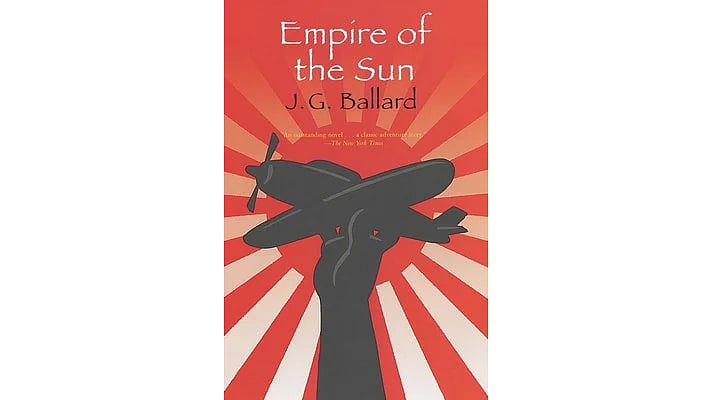
Empire of the Sun
Steven Spielberg’s 1987 film, Empire of the Sun, was a favourite in our house when we were children. This tale of a young boy surviving a life of deprivation in prison camps of China during the Second World War was a story of lost innocence told through indelible visuals.
It was only when I was older and having read his other works that I discovered that Empire of the Sun was, in fact, a fictional account of JG Ballard’s own childhood experiences in wartime Shanghai. Ballard, one of the great literary conjurers of dystopian visuals, was able to dredge up his memories and put them on the page, easily giving Spielberg rich material to use for his film (which toned down a lot of the book’s horrors). Like Jim, the protagonist of the novel, Ballard was born in Shanghai and grew up there in the privileged environment of the International Settlement. The masterful nature of Ballard’s prose has the reader in its grip from the opening lines of the book: “Wars came early to Shanghai, overtaking each other like the tides that raced up the Yangtze and returned to this gaudy city all the coffins cast adrift from the funeral piers of the Chinese bund.” Death and putrefaction make their presence known very early in Empire of the Sun.
As the city is being attacked, Jim and his parents attempt to escape; however, they are wounded while trying to get back home from the Palace Hotel, where they were staying in his father’s company suite. In the subsequent melee and his hospitalisation, Jim is separated from his parents. He makes his way back to the family home but finds no one there — the Chinese servants no longer show him any respect, and one of them slaps him when he asks too many questions. Left on his own, this slip of a child is barely noticed by the Japanese soldiers who are slowly occupying the grand houses of the International Settlement.
Jim is picked up by a couple of American criminals, one of whom, Basie, is at his side through the years that follow. Basie is not a caring adult — he’s a survivor ready to use anyone, even a child, as a means to an end. Jim latches on to that quality of Basie’s, and they are together till the Japanese capture them and put them on separate trucks to internment camps. Among the more responsible adults that Jim eventually falls in with is Dr Ransome, who ensures he continues to get an education and basic nutrition at the Lunghau Camp. At the camp, Jim roams wild and ever so slightly manic, observing the way adults around him try to cope. The British, Jim finds, have decided to pretend they are still in England: “Naming the sewage-stained paths between the rotting huts after a vaguely remembered London allowed too many of the British prisoners to shut out the reality of the camp, another excuse to sit back when they should have been helping Dr Ransome to clear the septic tanks.”
Jim’s experiences become increasingly horrifying — there doesn’t seem to be an immediate respite when the Americans drop the nuclear bomb in Nagasaki, and the war nominally comes to an end. Instead, he and his fellow prisoners walk in circles trying to get back to Shanghai while militias and gangs take over the region. The survivors are constantly thwarted in their attempt to find freedom and security, convincing Jim that the camp is probably the safest place for all of them. Sure, the book has what seems like a happy ending, but really, at what cost?
Reading Empire of the Sun now, 80 years after the historical incidents the book depicts, the core truth of Ballard’s story still holds: our social contracts are built on flimsy foundations, and it doesn’t take much for our trappings of civilisation to fall away.
That One Book is a fortnightly column that does exactly what it says — it takes up one great classic and tells you why it is (still) great. The author is a writer and communications professional. She blogs at saudha.substack.com